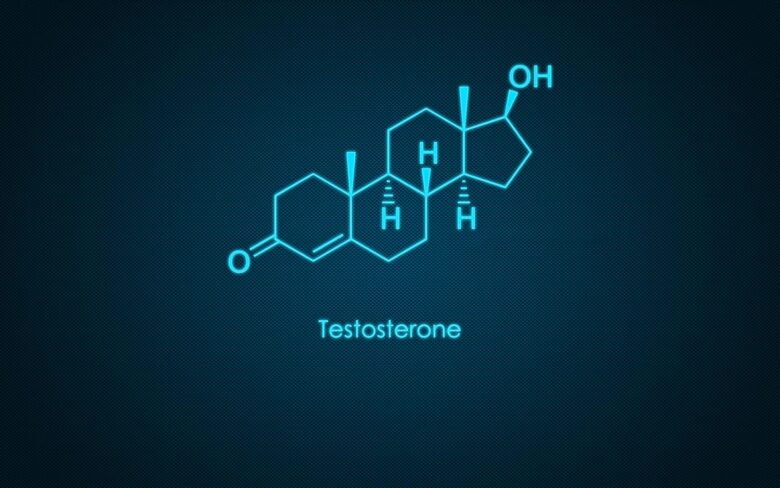Testosterone is a sex hormone that plays a crucial role in the development and maintenance of male reproductive tissues and characteristics. Produced primarily in the testicles, it also has essential functions in both men and women.
Testosterone contributes to the development of male reproductive organs, such as the testes and prostate, as well as promoting the growth of muscle and bone mass.
Additionally, it influences various aspects of male behavior and is involved in the regulation of mood and energy levels. In women, though present in smaller amounts, testosterone contributes to overall health, influencing libido, energy, and bone density.
Testosterone is enshrouded in a multitude of myths and misconceptions. These misinterpretations can contribute to an incomplete understanding of the vital role testosterone plays in the body. Let’s embark on a journey to unravel these common myths and illuminate the realities that define the intricate landscape of testosterone.

Source: mauiathletics.com
Contents
Is it true that testosterone therapy affects fertility?
Contrary to popular belief, testosterone replacement therapy does not universally result in reduced fertility. While it’s true that testosterone levels and fertility are interconnected, the impact of TRT on fertility varies among individuals. Some may experience temporary changes, but for many, fertility remains unaffected.
Fertility is a complex interplay of hormonal balance, and each person’s response to testosterone therapy differs. Factors such as age, overall health, and pre-existing conditions play crucial roles in determining how an individual’s fertility may be influenced by TRT.
To enhance the benefits of hormone therapy and address concerns about fertility, some individuals take anastrozole with testosterone. This strategic approach helps manage estrogen levels, optimizing the hormonal balance. However, it’s essential to emphasize that any adjustments to hormone therapy should be made under the guidance and supervision of a qualified healthcare provider.
Is it true that testosterone increases aggression?
One prevalent myth circulates the notion that testosterone is the primary culprit behind aggression and irritability. However, the reality is far more intricate.
Testosterone, the key player in hormonal dynamics, doesn’t have a straightforward correlation with aggressive behavior. In fact, its role in mood regulation is complex and nuanced, debunking the oversimplified association with heightened aggression.
Researchers have found that testosterone levels are linked to various aspects of emotional well-being, including mood stability and stress resilience. Moreover, the relationship between testosterone and aggression is not a one-size-fits-all scenario, individual differences and external factors also play pivotal roles.

Source: abc.net.au
Is it true that testosterone is exclusive to men?
While testosterone is often associated with male characteristics, it’s crucial to dispel the myth that women don’t require this hormone. In reality, women’s bodies produce testosterone in smaller quantities, and it plays a significant role in supporting their overall health.
Balancing Hormones
Testosterone is a key component in hormone balance for both men and women. In females, it works alongside estrogen to regulate various bodily functions, including metabolism, bone density, and muscle mass.
Energy and Vitality
Contrary to the belief that testosterone is exclusively linked to male energy, women also benefit from its role in maintaining energy levels and overall vitality. Adequate testosterone levels contribute to a sense of well-being and can help combat fatigue.

Source: canva.com
Libido and Sexual Health
Testosterone is crucial for maintaining a healthy libido in women. It contributes to sexual desire, arousal, and satisfaction, emphasizing its importance in overall sexual well-being. Research studies consistently highlight the positive correlation between testosterone levels and sexual health in women.
Muscle and Bone Health
Even in smaller amounts, testosterone plays a role in preserving muscle mass and bone density in women. This becomes particularly significant during aging when hormonal changes can impact these aspects of health.
Mood Regulation: Testosterone influences mood and cognitive function in both genders. In women, it contributes to a sense of mental well-being, helping prevent mood swings and supporting overall emotional health.

Source: longevity.technology
Is testosterone important only for athletes?
It’s a common misconception that concerns about testosterone levels are exclusive to athletes, but the truth is, that the importance of testosterone spans far beyond the athletic arena. While athletes may prioritize optimizing testosterone for peak performance, is of vital significance for everyone, regardless of their athletic pursuits.
Its multifaceted impact on health includes not only fostering mood regulation but also playing a pivotal role in maintaining optimal bone density and influencing the development and preservation of muscle mass.
Moreover, the diverse implications of testosterone underscore its universal significance. It is not confined to specific needs. Rather, it is integral to the overall well-being of individuals from various lifestyles. Recognizing the broader spectrum of testosterone’s effects reinforces its essential role in promoting health, resilience, and vitality for people in diverse circumstances.
In conclusion, it’s crucial to emphasize that testosterone is a vital hormone for everyone, regardless of their involvement in athletics.
Does testosterone level have no impact on mental health?
Another misconception is that testosterone only affects physical health. In reality, this hormone plays a crucial role in mood regulation and cognitive function, contributing significantly to overall mental well-being.
Numerous studies have highlighted the connections between testosterone levels and aspects of mental health such as stress, anxiety, and even conditions like depression. For instance, research suggests that lower testosterone levels may be linked to increased susceptibility to mood disorders.

Source: healthline.com
It’s essential to recognize the broader spectrum of testosterone’s influence, emphasizing its relevance not just for physical vitality but also for maintaining a healthy and balanced mental state.
Moreover, interventions to optimize testosterone levels, when appropriate and guided by healthcare professionals, have shown positive effects on mental health outcomes, reinforcing the interconnected nature of hormonal balance and emotional well-being.
Understanding these intricate relationships is vital for dispelling myths and fostering a comprehensive approach to health.
